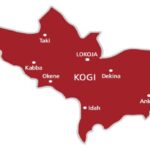Epileptic power supply has made life in Nigeria difficult and companies that need energy to operate shut down their factories and leave the shores of the country. Nigeria produces less than 3,000 megawatts for its 150million people.
The Chairman/CEO of Nigerian Electricity Regulatory Commission (NERC), Dr. Sam Amadi made this revelation while delivering a lecture in the Faculty of Engineering, University of Lagos during the International IET 2011 Conference recently.
Speaking on the theme “Sustaining 21st Century Engineering Infrastructure” Amadi said, “As the sector regulator we have discovered that what lies behind the years of declining standards is majorly poor management, resulting in gross underinvestment. The Ministry of Power which then served as the policymaker and the regulator could not provide robust and coherent policy support for expansion and sustenance of the national grid. It also lacked the overall capacity to effectively regulate the vertically integrated and bundled public utility. It was the absence of effective regulation that accounted for the collapse of the power sector in Nigeria.”
On electricity market regulation, he explained, “The electricity market works best when government and the regulator resist the temptation to unduly interfere with the running of the market. The best regulated market is rule based and deviates from the rules only when it is necessary to protect clear and important consumer interests.
“Generally, wholesale electricity prices are inherently volatile. This is why our adopted Multi-Year-Tariff-Order (MYTO) or any other price setting system is set to respond to certain relevant market indicators.
“To the above effect, price fluctuations are integral to competitive market, and hence, regulated tariffs such as price caps which undercut market prices do seriously undermine market confidence hence they must be resisted.”
He maintained that the answer to the crisis of the power sector is not just privatization. “But the most important thing is to imbibe core disciplinary practices which will guarantee the health of the sector,” he stressed.
He lamented that when governments elsewhere with the state-of-the-art infrastructure are bracing up to improve infrastructure and infrastructural services to cater for the demands for improved livelihood for their citizenry, Nigeria cannot provide even the basics.
According to Amadi, all that Nigeria’s government does is much rhetoric on infrastructural development. “If things continue this way, if we don’t walk the talk in terms of investing smartly in building world-class infrastructure to support economic and social development, our grandiose ambition of belonging in the club of medium economic powers in two decades will be just a pipe-dream,” he said.
The CEO lamented the cost of the absence of metro light rail systems, automated public toilets, computerized public information systems, advanced e-payment systems, e-libraries, functional/energy efficient public buildings including recreational centres is huge adding that the few infrastructural facilities that are in place and operational are either epileptic in service, or are extremely expensive to operate given that they must more often than not rely on stand-by power generators.
Such added operational costs ultimately sap the social value of these few facilities as they mutate into luxuries rather than essentials, he stated.



